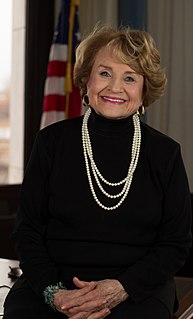A Quote by Liya Kebede
Miriam Were has made outstanding contributions to public health in the developing world. She brings basic medical services to women and children in East Africa.
Related Quotes
My 94-year-old grandmother has always been so inspiring to me. She is kind, smart, brave, and independent. After graduating number one in her medical school class at a time when it was extremely rare for women to attend medical school, she worked with the World Health Organization in North Africa to eradicate tuberculosis.
I want us to be judged by the impact we have on the health of the people of Africa and the health of women. Improvements in the health of the people of Africa and the health of women are key indicators of the performance of WHO. This is a health organization for the whole world... But we must focus our attention on the people in greatest need.
I do normal kind of contributions, particularly for people who are going over to Africa and help highlighting global health, and that's tended to be pretty bipartisan in nature because of the coalition there exists fortunately around these global health issues. But I don't think my backing, putting a lot of money into political contributions is a way I'm going to try and help improve the world.
Jobs in the public sector are increasingly dependent on technology, and more and more government services are available online in developed and developing countries. Women who have ICT skills can help develop and deliver these services, even in places where the sexes are traditionally kept separate.
We have a number of very powerful women in the world now - Mrs. [Angela] Merkel, who the Germans call Mutti. What did we call Mrs. [Margaret] Thatcher? When she was minister of education, she stopped the children's free school milk. This may sound quaint, but after the war we were such a malnourished nation that part of the founding of the welfare state were public health initiatives. Every little schoolchild got milk. Mrs. Thatcher stopped it. They called her "Maggie Thatcher, milk snatcher."
When we conducted focus group interviews in the first municipality in Brazil before initiating the pilot project, a woman commented: Getting an appointment in the public sector municipal health services is like "winning the lottery." I would like to make it possible for many women and men in Latin America to win the lottery and receive the type of reproductive health services they so urgently need.
The medical profession [in Egypt] is also very commercial. Health is not given to the poor. You know, if you have money, you have medical care; if you do not, then you are in trouble. I was not ready at all to build my economic security on the diseases of people, on suffering, especially of women and children. So, in a way, I rebelled against it.
The fact is, some of the most respected scientific bodies in the world, including Codex Alimentarius (jointly run by the World Health Organization and the Food and Agricultural Organization of the United Nations), the American Medical Association, the British Medical Association, and the American Public Health Association, have stated that more research needs to be done on GMOs through premarket safety assessments before we can truthfully determine their safety.
Very few Black people ever embraced back to Africa movements, and very few actually, a tiny number actually went back to Africa. They said, "We are going to make America live up to the ideals of the Declaration of Independence and the Constitution of the United States." They produced one of the world's great cultures; they produced individuals who were just as brilliant and made contributions to the world civilization. In fact, they produced a world-class civilization, the African American civilization, in music, in dance, in oratory, in religion, in writing.
These men [medical doctors] plan ways of doubling their incomes and come to the public with the plea that they are sincerely interested in the health and welfare of our children and that they put over their income-increasing programs for the health of our babies and for the welfare of the school children. They are as cold-blooded as any class of criminals on the whole earth. Indeed, I know of no other class of criminals who live by crippling, maiming and killing babies and children.
Countries with the best-resourced medical services have the best outcomes for physical illness (it is better to have a heart attack in Washington or London than in rural Africa) whereas precisely the opposite is the case for mental illness (developing nations with limited psychiatric resources have better outcomes and lower suicide rates).










































